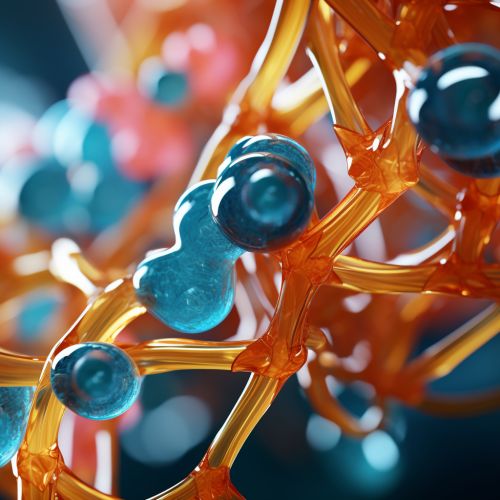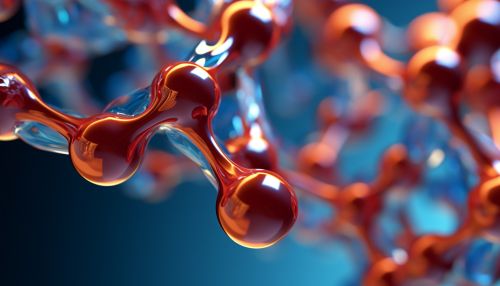Carbamoyl Phosphate Synthetase II
Overview
Carbamoyl Phosphate Synthetase II (CPS II) is a key enzyme involved in the urea cycle and pyrimidine biosynthesis. This enzyme catalyzes the synthesis of carbamoyl phosphate from bicarbonate, glutamine, and two molecules of ATP. This reaction is the first and rate-limiting step in the de novo synthesis of pyrimidines.


Structure
CPS II is a heterodimeric enzyme composed of a small regulatory subunit and a large catalytic subunit. The small subunit is responsible for the hydrolysis of glutamine to glutamate and ammonia, while the large subunit carries out the synthesis of carbamoyl phosphate. The two subunits are tightly associated and work together to ensure the efficient production of carbamoyl phosphate.
Function
The primary function of CPS II is to catalyze the synthesis of carbamoyl phosphate, which is a critical intermediate in the biosynthesis of pyrimidines. Pyrimidines are one of the two types of nitrogenous bases found in nucleic acids, the other being purines. The synthesis of pyrimidines is essential for the growth and proliferation of cells, as they are required for the synthesis of DNA and RNA.
Mechanism of Action
The reaction catalyzed by CPS II is a multi-step process. First, the enzyme hydrolyzes glutamine to produce glutamate and ammonia. The ammonia is then combined with bicarbonate and ATP to form carbamoyl phosphate. This reaction is highly exergonic, which drives the synthesis of carbamoyl phosphate.
Regulation
The activity of CPS II is tightly regulated to ensure the proper balance of pyrimidines in the cell. The enzyme is allosterically activated by AMP and inhibited by UTP. This allows the cell to increase the production of pyrimidines when they are needed and decrease their production when they are in excess.
Clinical Significance
Mutations in the gene encoding CPS II can lead to a rare metabolic disorder known as carbamoyl phosphate synthetase deficiency. This condition is characterized by an inability to properly metabolize proteins, leading to a buildup of ammonia in the blood. Symptoms can include poor growth, developmental delay, and life-threatening episodes of metabolic crisis.
